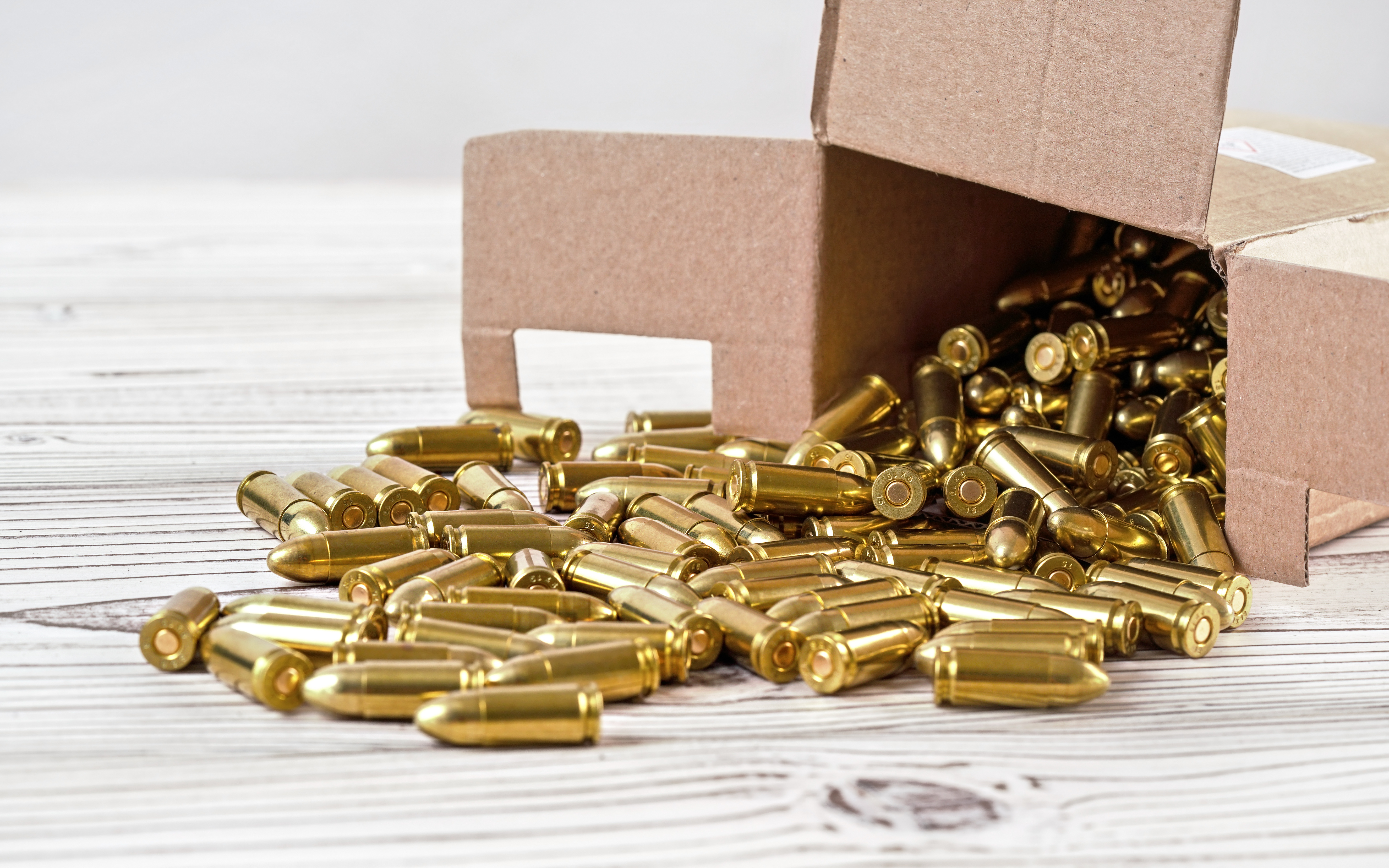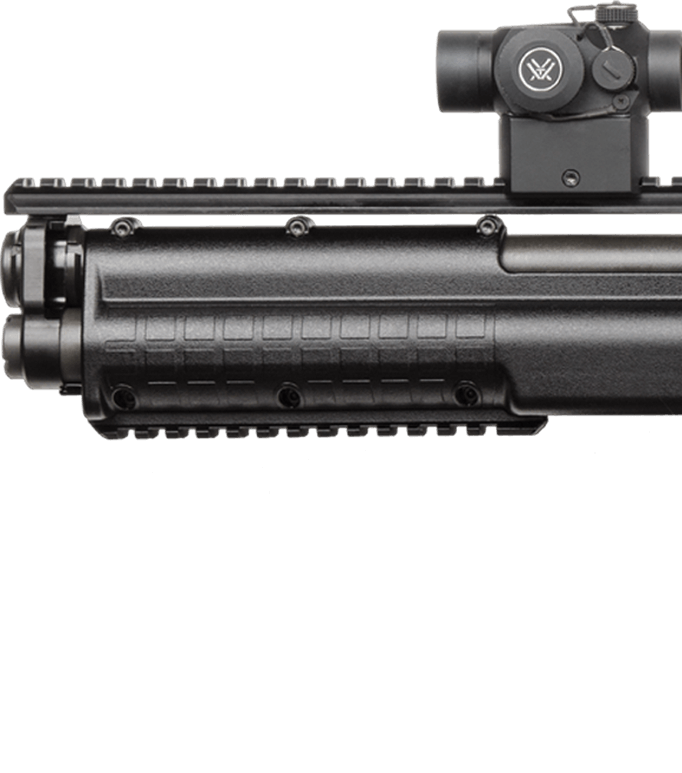Ammunition is the most important component of your firearm. Selecting the right ammunition matters just as much as using the right firearm. Firearms and ammunition should suit an intended purpose, such as hunting, target practice, home protection or personal defense. Just as a firearm’s size and mechanics differ, the weight, caliber, and velocity of ammunition will vary depending on the type. When you understand the various kinds of ammunition, you can predict how they will perform and whether they safely meet your needs.
Factors to Consider When Buying Ammunition
When buying ammunition, you need to consider three key factors: caliber, grain and purpose. Using the incorrect ammunition for your firearm can not only cause maintenance problems or void your warranty, but it can also be dangerous. Keeping these factors in mind helps ensure that you can safely enjoy and depend on your firearm for years to come.
Caliber
The caliber of ammunition should match your firearm’s requirements and your intended use. For example, 22 long rifle ammunition is a small caliber round that works well for training and some small game hunting. You will experience little recoil or muzzle blast in most .22lr platforms and its affordability makes it appealing. 9mm ammunition, like many other calibers offers bullet versatility and it's a very common caliber considered among concealed carry advocates. Because it’s a common caliber, 9mm practice ammunition is relatively inexpensive. The cost savings with .22lr and 9mm translates to more effective training without breaking the bank.
Grain
Bullet weight, or grain, affects the projectile’s velocity and impact downrange. Smaller grain projectiles tend to travel faster which generally translates to better penetration through barriers such as thick clothing or animal hides. These smaller, faster bullets however potentially deflect more easily off of hard barriers such as glass, wood or metal. Higher grain, or heavier bullets tend to carry their weight through such barriers with little deflection, even though they typically travel at slower speeds. Consider this trade-off when you buy your ammunition for its intended purpose.
Use
Do you plan to use your ammunition for target practice or for personal defense? For target practice, using full metal jacket, or FMJ ammo is ideal due to the cost savings. This ammunition typically features a lead bullet fully surrounded by a copper jacket. It does not expand when striking a target, so the projectile maintains its speed and can over-penetrate. You should not use FMJ ammunition in personal defense or hunting unless it’s your only option.
Jacketed hollow point projectiles, or JHPs are recommended for concealed carry and hunting. JHPs have an opening that exposes the soft metal core and allows the bullet to expand in the target. This creates a greater impact and slows the bullet upon entry, which translates to more energy after penetration. Its decreased chance of passing through the target makes JHP projectiles ideal for personal defense situations. Stopping a threat with no collateral damage is key in personal defense. The same philosophy applies to hunting. A hollow point or soft tip bullet dumps its energy at the target after penetration. This creates a larger wound channel, making for a more humane kill.
Cost vs. Quality
While inexpensive ammunition works in certain situations such as practice or plinking, the cost of ammunition generally correlates to its quality. The higher the cost, the better quality product you’re getting. The old adage, ya get what ya pay for applies here. If you want your firearms to run reliably and effectively when you need them most, use American-made, quality ammunition.
The discussion of cost vs. quality centers around the three types of cases: brass, aluminum, and steel. Typically American-made, brass-cased ammunition will give you the best bang for your buck.
Aluminum and Steel Case
Aluminum and steel fall under the category of budget ammunition. Although perfectly appropriate for training, these cartridges are not reliable or consistent enough for personal protection, target shooting or hunting. Aluminum and steel cartridges are less expensive than brass, but the bullets used are usually of lesser quality, the powder loads are inconsistent and all of that translates to subpar reliability and accuracy issues. With steel-case ammunition in particular, we should point out that the harder metal of the case tends to wear out firearm components faster than softer metals such as brass.
Brass Casings
Brass-case ammunition is generally of higher quality and it’s more consistent. Particularly American-made brass ammunition features better bullets and higher quality powder than most foreign counterparts. With cleaner burning powders found in brass ammunition, your firearms generally stay cleaner for longer. Another benefit in using brass-case ammo is its reloading capability. If you don’t reload your own ammunition, you can sell your empty brass to offset your practice ammo costs. That’s not an option with aluminum or steel ammunition. Combined, these qualities make brass our go-to recommendation no matter your shooting discipline.
Companies You Can Trust
When you use reliable ammunition, you build confidence with your firearm and your abilities. Well-made ammo also keeps your performance more consistent. We recommend purchasing supplies from brands with top quality products. Winchester, Federal Premium Ammunition, and Hornaday are three common brands found at accessible, well-known stores. They produce a wide variety of high-quality, reliable ammunition for just about every purpose.
Understanding Your KelTec Firearm
KelTec aims to help our customers understand their firearms to ensure they can reliably protect themselves and their loved ones. At Keltec, we produce high-performance firearms from innovative designs. We have pioneered concealed carry handguns for qualified citizens, law enforcement, and military personnel. If you have more questions about firearms and ammunition, contact us on our website or call 321-631-0068 today.





